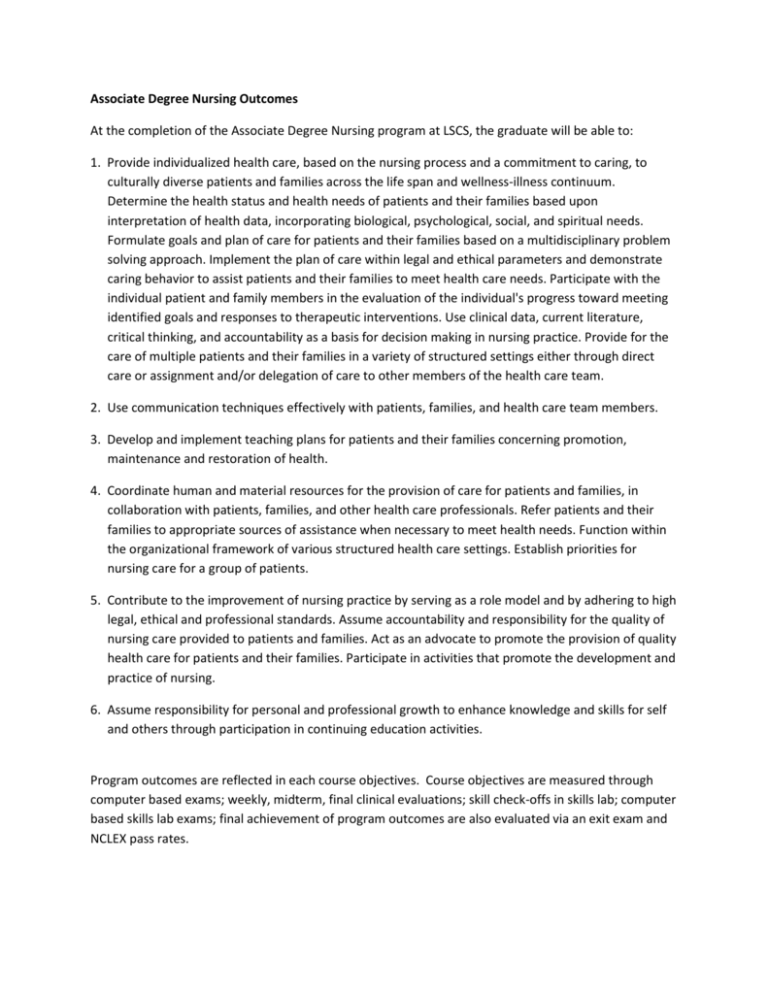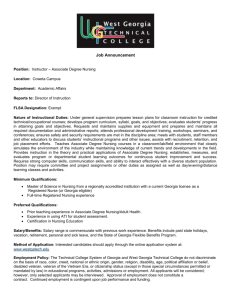ADN –-Outcomes
advertisement

Associate Degree Nursing Outcomes At the completion of the Associate Degree Nursing program at LSCS, the graduate will be able to: 1. Provide individualized health care, based on the nursing process and a commitment to caring, to culturally diverse patients and families across the life span and wellness-illness continuum. Determine the health status and health needs of patients and their families based upon interpretation of health data, incorporating biological, psychological, social, and spiritual needs. Formulate goals and plan of care for patients and their families based on a multidisciplinary problem solving approach. Implement the plan of care within legal and ethical parameters and demonstrate caring behavior to assist patients and their families to meet health care needs. Participate with the individual patient and family members in the evaluation of the individual's progress toward meeting identified goals and responses to therapeutic interventions. Use clinical data, current literature, critical thinking, and accountability as a basis for decision making in nursing practice. Provide for the care of multiple patients and their families in a variety of structured settings either through direct care or assignment and/or delegation of care to other members of the health care team. 2. Use communication techniques effectively with patients, families, and health care team members. 3. Develop and implement teaching plans for patients and their families concerning promotion, maintenance and restoration of health. 4. Coordinate human and material resources for the provision of care for patients and families, in collaboration with patients, families, and other health care professionals. Refer patients and their families to appropriate sources of assistance when necessary to meet health needs. Function within the organizational framework of various structured health care settings. Establish priorities for nursing care for a group of patients. 5. Contribute to the improvement of nursing practice by serving as a role model and by adhering to high legal, ethical and professional standards. Assume accountability and responsibility for the quality of nursing care provided to patients and families. Act as an advocate to promote the provision of quality health care for patients and their families. Participate in activities that promote the development and practice of nursing. 6. Assume responsibility for personal and professional growth to enhance knowledge and skills for self and others through participation in continuing education activities. Program outcomes are reflected in each course objectives. Course objectives are measured through computer based exams; weekly, midterm, final clinical evaluations; skill check-offs in skills lab; computer based skills lab exams; final achievement of program outcomes are also evaluated via an exit exam and NCLEX pass rates.











